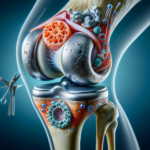Understanding Hypertension: An Overview
Hypertension, commonly known as high blood pressure, is a chronic medical condition that affects millions of people worldwide. Often referred to as the “silent killer,” hypertension can lead to severe health complications if left untreated, including heart disease, stroke, and kidney failure. The condition is characterized by the force of blood against the artery walls being consistently too high, which can cause damage over time.
Several factors contribute to the development of hypertension, including genetics, lifestyle choices, and underlying health conditions. Risk factors include obesity, a diet high in salt, excessive alcohol consumption, lack of physical activity, and stress. Additionally, hypertension is more prevalent in older adults and certain ethnic groups.
Understanding hypertension is the first step in managing it effectively. Regular monitoring of blood pressure levels is essential for early detection and prevention of complications. Healthcare providers often recommend lifestyle changes as the first line of defense, such as adopting a balanced diet, increasing physical activity, and reducing stress. In cases where lifestyle modifications are insufficient, medications may be prescribed to help control blood pressure levels.
The Role of Medications in Hypertension Management
When lifestyle changes alone are not enough to control high blood pressure, medications become a crucial component of hypertension management. There are several classes of medications used to treat hypertension, each working in different ways to lower blood pressure. These include diuretics, beta-blockers, ACE inhibitors, angiotensin II receptor blockers (ARBs), calcium channel blockers, and more.
Diuretics, often referred to as “water pills,” help the kidneys remove excess sodium and water from the body, thereby reducing blood volume and lowering blood pressure. Beta-blockers work by reducing the heart rate and the heart’s output of blood, which lowers blood pressure. ACE inhibitors and ARBs help relax blood vessels by blocking the formation or action of a hormone that narrows blood vessels. Calcium channel blockers prevent calcium from entering the cells of the heart and blood vessels, leading to relaxed blood vessels and lower blood pressure.
The choice of medication depends on various factors, including the patient’s overall health, the presence of other medical conditions, and potential side effects. It’s important for patients to work closely with their healthcare providers to find the most effective medication regimen for their individual needs.
Comparing Different Classes of Blood Pressure Medications
Each class of blood pressure medication has its unique mechanism of action and potential benefits, making it essential to compare them to determine the most suitable option for a patient. Diuretics, for instance, are often the first choice for many patients due to their effectiveness and low cost. However, they can cause side effects such as electrolyte imbalances and increased urination.
Beta-blockers are particularly useful for patients with a history of heart disease, as they help reduce the risk of heart attacks. However, they may not be suitable for individuals with respiratory conditions such as asthma. ACE inhibitors and ARBs are often preferred for patients with diabetes or kidney disease, as they offer protective benefits for the kidneys. Calcium channel blockers are effective for those who cannot tolerate other medications, but they may cause side effects like dizziness and swelling in the lower extremities.
Patients may need to try different medications or combinations to achieve optimal blood pressure control. Regular follow-up appointments with healthcare providers are crucial to monitor the effectiveness of the treatment and make necessary adjustments.
Potential Side Effects and Considerations
While blood pressure medications are effective in managing hypertension, they can also cause side effects. Understanding these potential side effects and how to manage them is crucial for patients. Common side effects include dizziness, fatigue, headaches, and gastrointestinal issues. Some medications may also cause more specific side effects, such as a persistent cough with ACE inhibitors or swelling with calcium channel blockers.
It’s important for patients to communicate any side effects they experience to their healthcare providers. In some cases, adjusting the dosage or switching to a different medication can alleviate these issues. Additionally, patients should be aware of potential interactions with other medications or supplements they may be taking.
Adherence to medication is another critical consideration. Patients should take their medications as prescribed and not discontinue them without consulting their healthcare provider, even if they feel well. Abruptly stopping medication can lead to a dangerous spike in blood pressure, increasing the risk of complications.
Conclusion: Navigating Hypertension Treatment
Managing hypertension effectively requires a comprehensive approach that includes lifestyle changes and, when necessary, medication. Understanding the different classes of blood pressure medications and their potential side effects is crucial for patients and healthcare providers alike. By working together, they can develop a personalized treatment plan that optimizes blood pressure control and minimizes the risk of complications.
Regular monitoring, open communication with healthcare providers, and adherence to prescribed treatments are key to successfully managing hypertension. With the right approach, patients can lead healthy lives and reduce the risk of serious health issues associated with high blood pressure.








